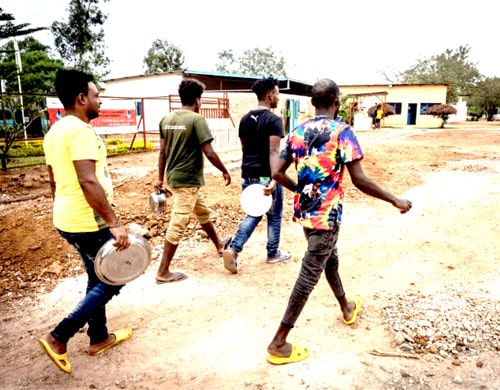Ismail Hmdan Banaga says he’s had a “frustrating and fruitless” time waiting in vain in Rwanda for his Canadian asylum request to be approved. The 33-year-old Sudanese told AFP he is so fed up he is considering a trek back to war-torn Libya to try to make it to Europe across the Mediterranean, a perilous voyage that has taken the lives of many. He is one of hundreds of Africans once stranded in Libya who are now in limbo at the Gashora Transit Centre on a dusty road outside the capital Kigali — but none want to stay in the country that gave them shelter.
Their fate has come under the spotlight since Britain hatched a controversal deal with Rwanda in April to deport unwanted asylum seekers to the East African country. “I have done several interviews to go to Canada but there is no feedback. The officials are not being very clear about the way forward,” said Banaga, who has been at Gashora for almost a year.
“The fact is I’m not going back to Sudan, and not staying here for life. I would rather go back to try and cross the sea.”
Residents live in small brick maisonettes at Gashora, which has seen almost 1,100 people come through its doors since 2019 when Rwanda agreed to offer shelter to refugees from Libya. It has a cafeteria, basketball/volleyball court and driving practice area — some say they want to become taxi drivers when they reach Europe — and a centre where people can learn skills such as weaving and hairdressing.
“There’s freedom here at the camp to do whatever I like, way better than the conditions in Libya and I like it here, but the processing speed for asylum to leave is very slow,” Banaga said. Another refugee discussed his situation with AFP on condition of anonymity, saying he cannot speak freely in the presence of Rwandan and UN refugee agency officials for fear of reprisals.
“I regret coming to Rwanda,” he said. “First, I left Sudan, leaving my children and my father behind under conditions of war… and looting and robbery everywhere.” —AFP










